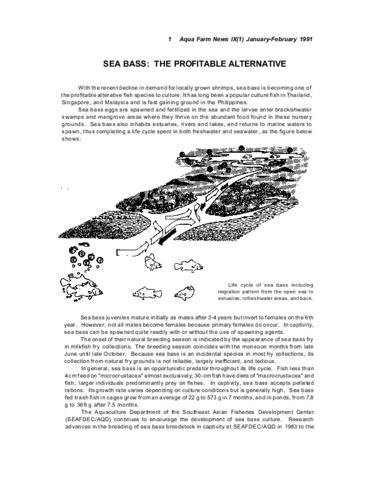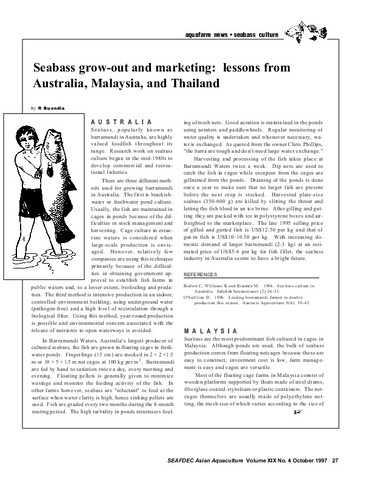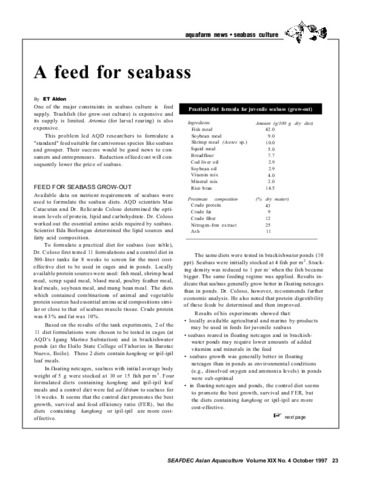Screening of vibriosis in Asian seabass, Lates calcarifer using loop-mediated isothermal amplification (LAMP) assay
- Global styles
- MLA
- Vancouver
- Elsevier - Harvard
- APA
- Help

Download URL
www.hvm.bioflux.com.roDate
2012Page views
1,346ASFA keyword
AGROVOC keyword
Taxonomic term
Metadata
Show full item record
Share
Abstract
The aim of this study was to standardize a loop-mediated isothermal amplification (LAMP) assay for the detection of Vibrio harveyi , the causative agent of vibriosis in Asian seabass, Lates calcarifer. The dnaJ gene of the bacterial pathogen was used as the target gene for the LAMP assay. It was optimized at an incubation time of 1 h at 63°C. The assay was highly specific for V. harveyi and did not cross-react with other bacterial pathogens offish. However, the assay was able to detect V. harveyi that was isolated from infected shrimps. The limit of detection of the LAMP assay was 40 pg of DNA mL-1 or 40 fg of the genomic DNA per LAMP reaction and was 10 times more sensitive than conventional PCR in detecting the bacterial pathogen from infected samples. The LAMP products can be quantified spectrophotometrically using hydroxynaphthol blue (HNB) dye and showed positive correlation with the amount of the pathogen. These results demonstrated that LAMP is a simple and sensitive detection technique that has potential application for routine diagnosis of vibrosis caused by V. harveyi in Asian seabass and other aquatic species.
Suggested Citation
Caipang, C. M. A., Pakingking, R. V., Jr., & Apines-Amar, M. J. S. (2012). Screening of vibriosis in Asian seabass, Lates calcarifer using loop-mediated isothermal amplification (LAMP) assay. Human & Veterinary Medicine , 4(2), 52-57. http://hdl.handle.net/10862/2172
Type
ArticleISSN
2066-7655; 2066-7663Collections
- Journal Articles [1262]
Related items
Showing items related by title, author, creator and subject.
-
Sea bass: The profitable alternative
Southeast Asian Fisheries Development Center, Aquaculture Department (Aquaculture Department, Southeast Asian Fisheries Development Center, 1991) -
Seabass grow-out and marketing: lessons from Australia, Malaysia, and Thailand
Buendia, Romeo (Aquaculture Department, Southeast Asian Fisheries Development Center, 1997) -
A feed for seabass
Aldon, E. T. (Aquaculture Department, Southeast Asian Fisheries Development Center, 1997)One of the major constraints in seabass (Lates calcarifer) culture is feed supply. Details are given of work conducted at AQD regarding the formulation of a 'standard' feed suitable for carnivorous species like the seabass ...






